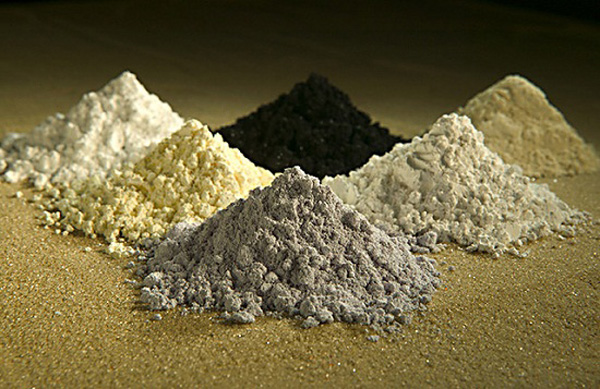Rare Earth Elements Getting Recycled, Finally

Get the world’s most fascinating discoveries delivered straight to your inbox.
You are now subscribed
Your newsletter sign-up was successful
Want to add more newsletters?

Delivered Daily
Daily Newsletter
Sign up for the latest discoveries, groundbreaking research and fascinating breakthroughs that impact you and the wider world direct to your inbox.

Once a week
Life's Little Mysteries
Feed your curiosity with an exclusive mystery every week, solved with science and delivered direct to your inbox before it's seen anywhere else.

Once a week
How It Works
Sign up to our free science & technology newsletter for your weekly fix of fascinating articles, quick quizzes, amazing images, and more

Delivered daily
Space.com Newsletter
Breaking space news, the latest updates on rocket launches, skywatching events and more!

Once a month
Watch This Space
Sign up to our monthly entertainment newsletter to keep up with all our coverage of the latest sci-fi and space movies, tv shows, games and books.

Once a week
Night Sky This Week
Discover this week's must-see night sky events, moon phases, and stunning astrophotos. Sign up for our skywatching newsletter and explore the universe with us!
Join the club
Get full access to premium articles, exclusive features and a growing list of member rewards.
Rare earth metals — a set of seventeen chemical elements, including scandium, promethium, yttrium and cerium -- come from a small handful of places in the world. So it's about time that these crucial electric vehicle battery materials started getting recycled on a large scale. Honda announced plans to create what it's calling world's first mass-production process for doing just that with spent nickel-metal hydride batteries.
PHOTOS: 10 Best Places to Harness Solar Power
Honda dealerships will collect used batteries from customers and then send the parts to Japan Metals and Chemicals for the actual recycling. Japan Metals and Chemicals plans to disassemble the batteries, sort out the active substances, and then extract both rare earth elements as well as the nickel and cobalt. The company already has an established heat treatment process for the extraction, according to Honda.
As much as 80 percent of the rare earth metals in used nickel-metal hydride batteries can be extracted with this new process, the automaker said in a press release. Once they've been extracted, the metals can be reused not only in batteries but in other car parts.
The term "rare earth," while a bit of a historical misnomer, stuck around mainly because these elements aren't likely to be concentrated in exploitable ore deposits, according to the U.S. Geological Survey. Plus, their availability from China, which supplies most of the world's demand, hinges on several volatile factors like environmental regulations, export limits, and territorial control of mining operations.
Although Honda's getting a lot of attention over the recycling plan, Toyota should get some props for announcing earlier this year that it found a way to make make hybrid and electric vehicles without any rare earth elements such as neodymium and dysprosium. Instead of magnet-type motors, Toyota plans to develop lightweight inductive motors.
Honda didn't say precisely when its program will start or exactly which metals will be recycled, but they're likely to include lanthanum. Have you heard of lanthanum? I hadn't. Perhaps if we knew more about the "metal" in nickel-metal hydride batteries we could do more to conserve it.
Get the world’s most fascinating discoveries delivered straight to your inbox.
This article was provided by Discovery News.
 Live Science Plus
Live Science Plus










